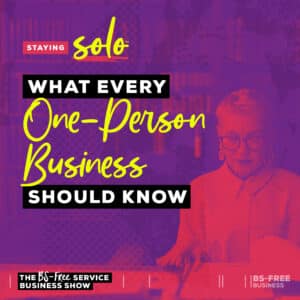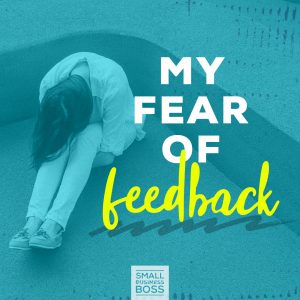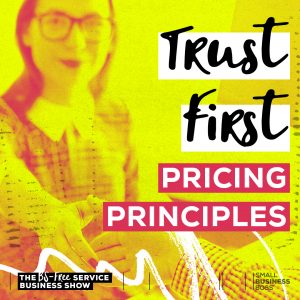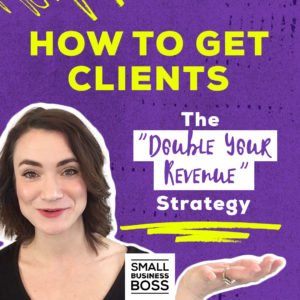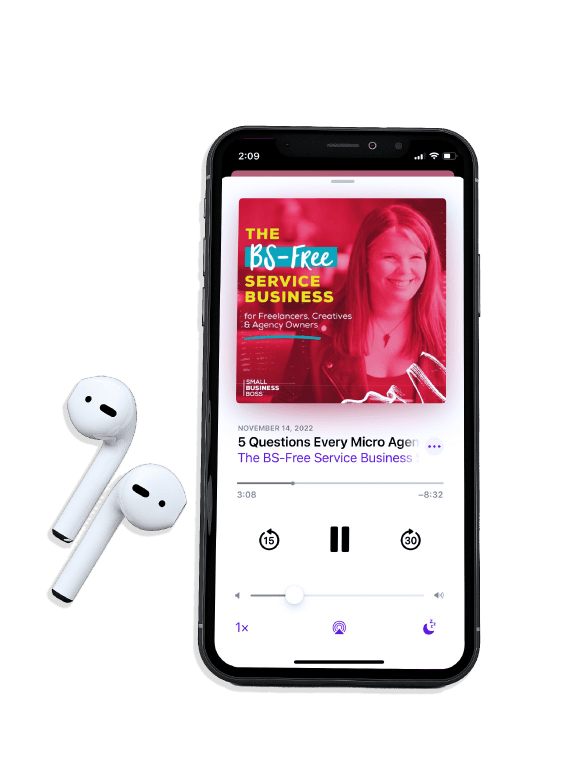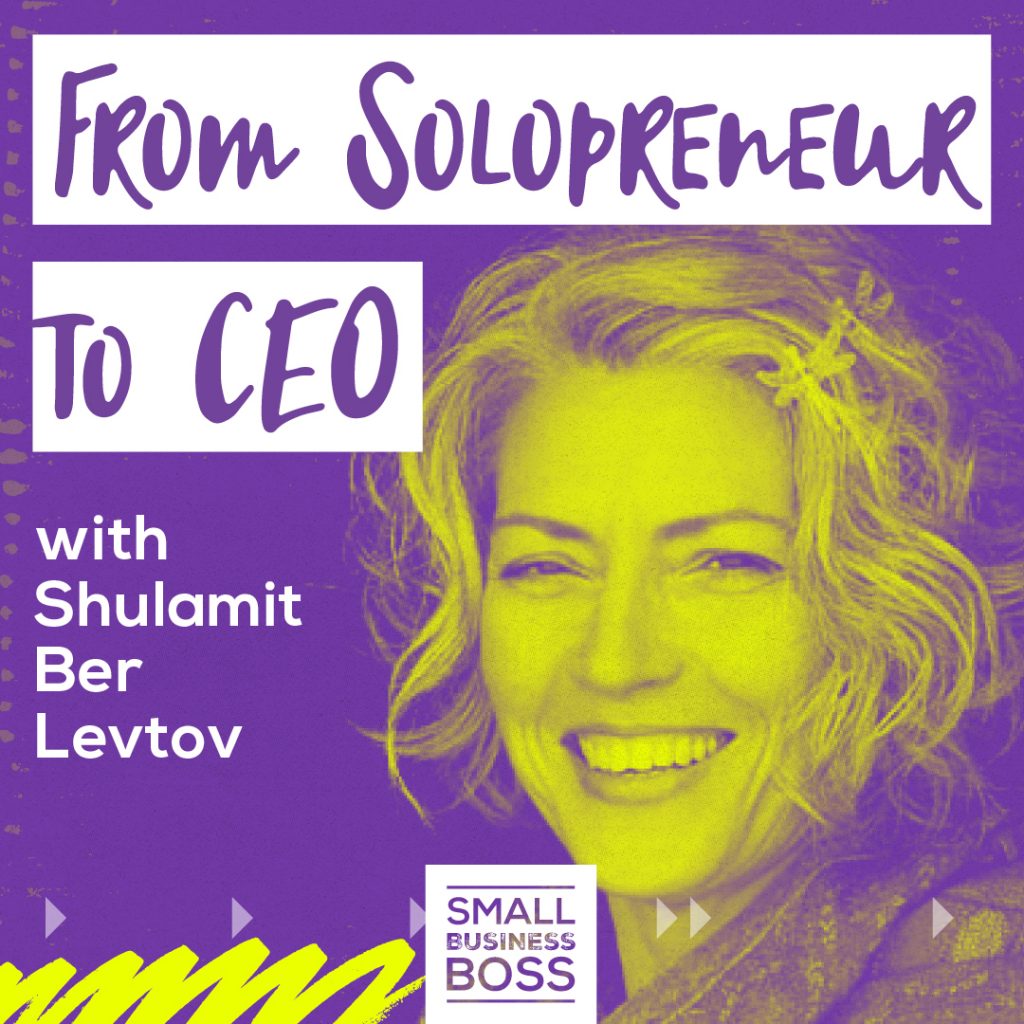
Search the site:
Episode 137: From Solopreneur to CEO with Shulamit Ber Levtov
Have you ever looked around online and thought your business was different? That’s exactly what today’s guest Shulamit Ber Levtov faced in the online world as a therapist, and it took getting back to her local business roots to really start to thrive. In this episode, Shulamit and I go into her journey from solopreneur to running an award-winning clinic and the lessons she’s learned along the way.
When I first met Shulamit, or as I call her, Shuli, she was roaming around the online world looking for a place to fit in. (Sounds familiar, right?) I know I definitely had this experience! And it’s why I’m pumped to share her story today of going from a part-time therapist to founding a clinic.
Warning, I’m particularly passionate about her mission of providing mental health services. Plus, she’s local to me, and her clinic serves my immediate area. In a rural area, what she’s done has been so strategic AND was desperately needed.
Here’s her bio:
Shulamit is the founder and director of a holistic stress and trauma clinic in Kemptville, Ontario. She works with business women and busy women who want to manage their stress so they can be chill and still respond effectively when the crap hits the fan.
Shulamit is an entrepreneur, a social worker, a Yoga teacher, and a survivor of sexual assault and domestic violence. Shulamit has logged thousands of hours helping hundreds of men and women recover from the effects of stress and trauma. Throughout her career, Shulamit has spoken and taught locally, internationally, and online. She does this work because it’s her way of shining light into what can seem like a sometimes dark world.
Tell us a little bit about your business and how you make money.
- I provide 1-to-1 services to business women and busy women who want to manage their stress from daily life and symptoms of trauma better so they can relax and feel okay in life and still respond effectively.
- The women I work with need to be effective entrepreneurs, effective moms, effective professionals, effective partners.
- I am also the director of a holistic clinic, so some of my money comes from the clinic, from the associates who work with me at the clinic.
What kind of services do you offer at the clinic?
- I’m a social worker, so I provide psychotherapeutic services.
- I have an associate who is a counselor, and she also provides psychotherapeutic services.
- There’s a therapeutic yoga teacher, and she works 1-on-1 with folks who have stress and trauma and applies the tools of yoga to help them recover.
- I have a woman who is providing therapeutic cupping, so that supports the whole body physiologically in recovering from the effects of stress and trauma.
How did you get to the point where you have a clinic? How did you start your business in the first place?
- I started school in social work, but I got involved in the campus radio station and diverted into radio, TV, and PR.
- I had always been bilingual, so I was still working in the field of communications when I was recruited to be a translator for a translation company.
- I was then injured and had to do my own occupational rehab.
- It made sense to me, then, to go back to my roots in social work because I couldn’t type for the rest of my life (that was basically the problem).
- I re-trained myself to become a therapist.
- While I had been working in other fields on the side, I became a yoga teacher, I became a certified trainer in non-violent communication, and a certified focusing teacher and guide.
- Those were the skills that always followed me, but it was always my side hustle. It was what I did for meaningful work in my life.
- I went back to school and got my masters in counseling and spirituality and started working part-time for a community-based mental health agency, but right away I started part-time in private practice.
- I was in my late 40s, and there weren’t any jobs. They were all contract work.
- The vast majority of my life has been contract work, so I have no pension, so I had to have a retirement plan.
- When I went back to school as a therapist, my retirement plan was to set myself up so I could work up until I dropped dead basically.
- I worked for an EAP company from the inside and observed how things went because they assign clients to counselors.
- I realized there was minimal service in rural areas.
- So I moved to a rural area and established my practice in a rural area, and there was so much demand that I was able to go from part-time to full-time.
- I left the agency work and established my full-time practice.
- Then I got swamped and decided to take on an associate because there are no services here, there was no one here to whom I could refer.
- I saw how there was a need in the community for this kind of quality holistic approach to stress and trauma symptom management.
- Otherwise, people have to commute into the city.
- At first, I thought I had to go the Internet route with my business — and it flopped big time.
- When I started paying attention to what people were saying when they came to me, they told me what they needed.
You’re a locally based business. How do you find clients?
- I’m fortunate that I’m super outgoing.
- It’s easy for me to step out into public situations and network.
- As therapists, the know, like, and trust that we have with our clients, that’s what I do when I go out and connect with folks in the community.
- My major emphasis has been joining networking groups where there are no other therapists.
- This past year, I set the goal of speaking once a month in some forum or another — publically or a podcast or some platform like that — and I’ve surpassed that goal.
- The majority of my clients have met me in person somewhere.
How has all this work around visibility contributed to the success of the clinic?
- Part of my job is to cultivate relationships with people so that when the crap hits the fan, they know who to call.
- I’m trusting that in the next 12-18 months, the client base at the clinic will rise, but I can’t yet measure that because I’m still in the lead-up to the payoff.
- The more I’ve spoken, the more people want me to speak.
- I’m confident that I’ve become established as the local authority on stress and how to manage and recover from stress.
- I’m trusting that will lay the foundation for people to use the resources when they need them.
Because it does take 12-18 months to see results, it’s really challenging as a business owner to have that long-term view.
- I have to remind myself daily that I’m doing what I know works even though I’m not getting the immediate ‘payoff.’
- I’m not getting the satisfaction of seeing people come in the door yesterday because I spoke at a thing the day before.
- Every time I speak, I always have a call to action.
- Double It showed me that everything I do has to have some call to action.
- So I never go anywhere without my little newsletter sign-up sheet.
- Every two weeks, I send stress reduction tips, and I have a whole promotional strategy around the tips that I produce.
- That’s how I nurture the relationships — I contribute to my community and make people’s lives better — but I also nurture the relationship so they feel comfortable reaching out when the time comes.
You’re part of Double It, and your business is different than others. How has being a part of that group had a positive impact on your business and your growth?
- Research shows that mental health professionals are notoriously bad with money.
- Also, most small businesses fail within their first year.
- I resolved that that was not going to be my story, that I was going to be an entrepreneur and that my business was going to succeed.
- Double It is what helped me achieve those goals.
- I’m running my business like a business, and I’m thinking of myself as a CEO.
- My mind shift into thinking entrepreneurially and as a CEO made possible the idea of a clinic.
- That was inconceivable to me two years ago when I started Double It.
- The whole concept of what was possible in my life and as an entrepreneur now just completely opened up.
- The skills I needed to run the business and to be an effective business person, those also came from participating in Double It.
What would you tell someone if they were thinking about joining Double It for 2019?
- Could I just make you do it?
- Double It has made me strategic, and it has given me focus, so the work I do has the outcomes I want.
- It also helps me say no to a heck of a lot of crap.
- If you want to move your business forward, if you want to get results, if you want to develop and grow and not be stressed out, then Double It can provide you with the support and structure to do that.
Lessons:
- Shuli shared how, as a locally-based business, finding clients has been about getting there and being seen. She noted that she went where her potential clients or people who can share her business were — not where other therapists were hanging out. Creating a category of one in this way really makes a vital difference and ensures you’re memorable.
- Visibility has been a huge focus for Shuli in her business this year, and she knows that it’s about planting seeds for 12 to 18 months out. Understanding how long it takes for people to potentially become clients means you can look at your efforts more strategically, and be patient!
- She pointed out that she makes a lot of effort to continue to nurture the relationship online, so she’s able to stay top of mine. The key for Shuli has been being consistent with her social, blog, and newsletter every single month to help people learn to know, like, and trust her.
Links for This Show:

I’m Maggie Patterson (she/her), and services businesses are my business.
I have 20+ years of experience with client services, am a consultant for agency owners, creatives, and consultants, and vocal advocate for humane business practices rooted in empathy, respect, and trust.
Help Not Hype
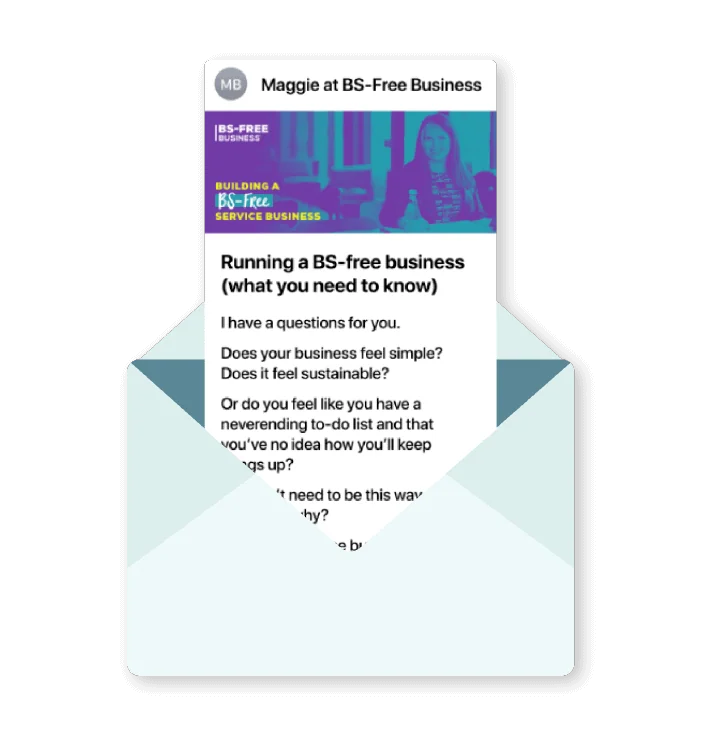
Tired of the same old BS business advice?
I got you with weekly emails packed full of proven strategy that makes a real difference in your service business.

